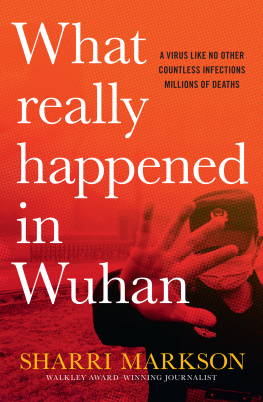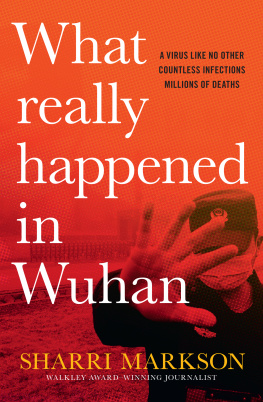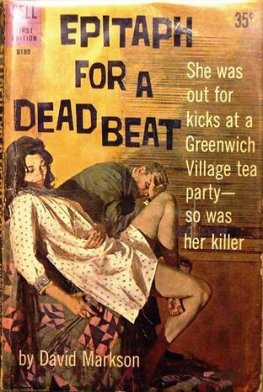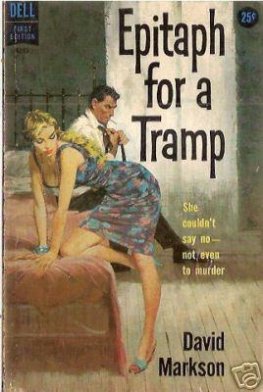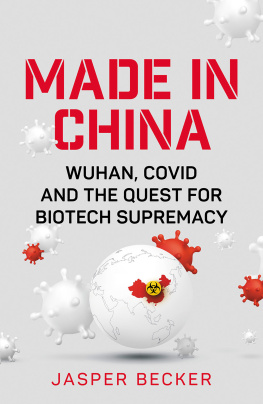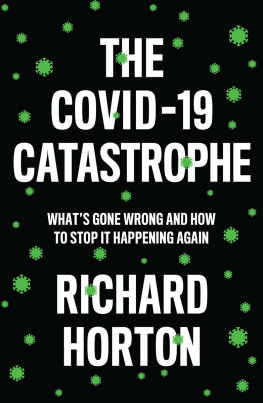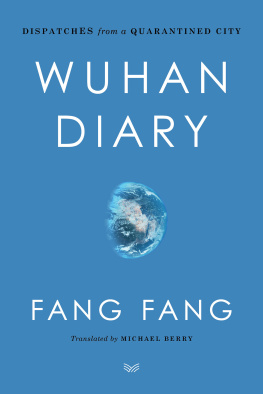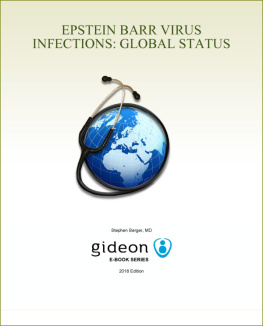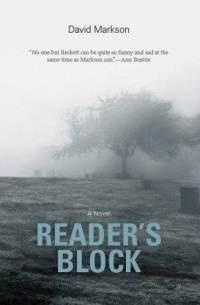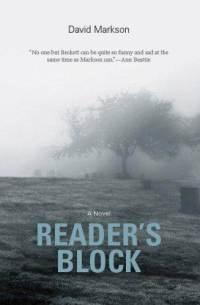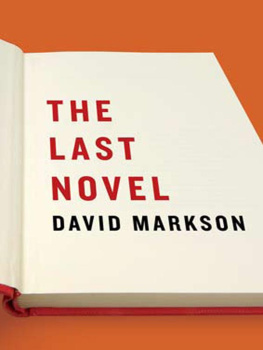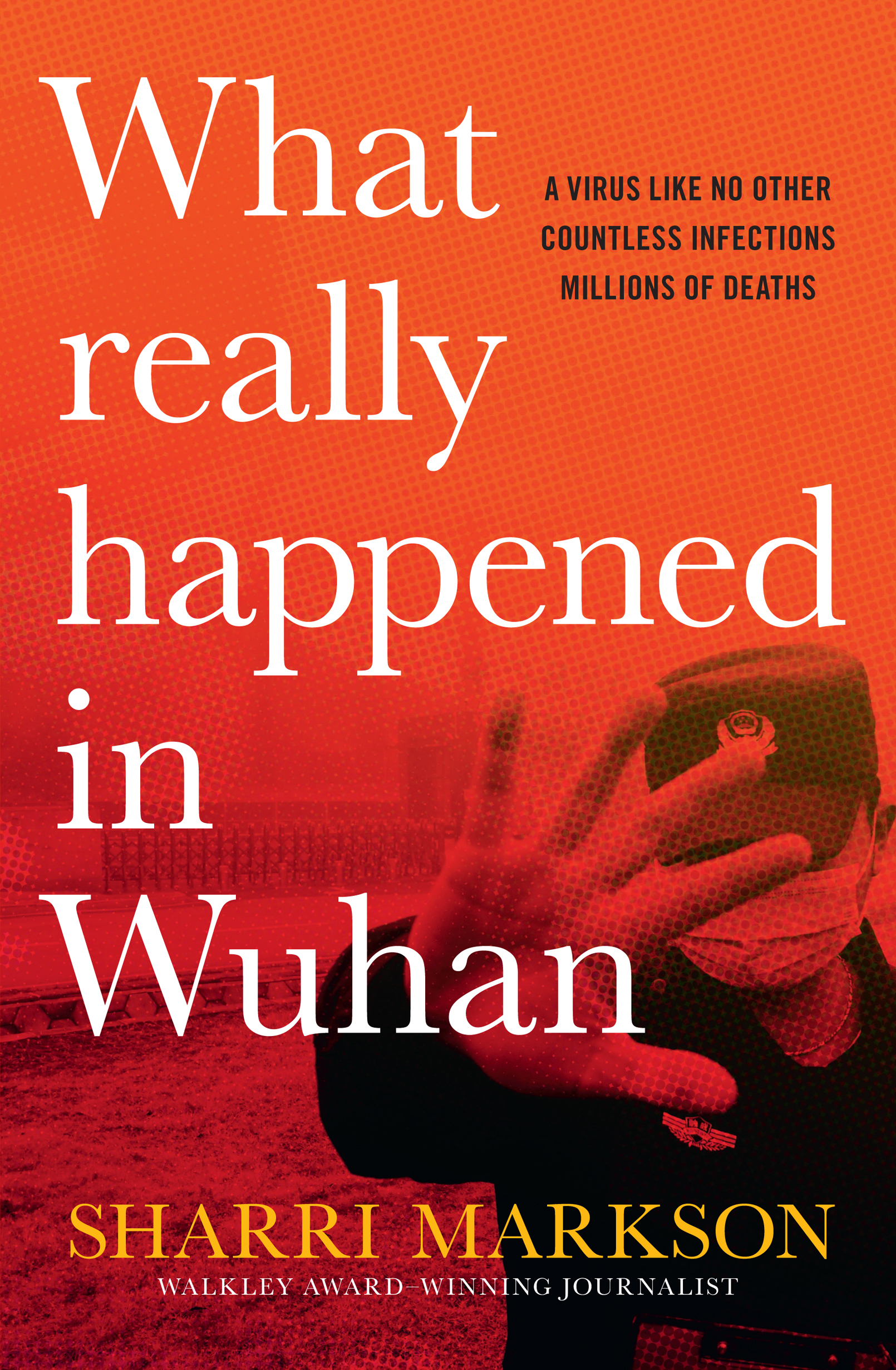Contents
Guide
SHARRI MARKSON is a two-time Walkley Awardwinning journalist, investigations writer at The Australian and host of Sharri on Sky News Australia. She has been at the forefront of breaking news regarding the origins of the Covid-19 pandemic since early 2020. Sharri was previously national political editor at The Daily Telegraph, media editor at The Australian, editor at Cleo magazine, news editor at Seven News, and political reporter and chief of staff at The Sunday Telegraph. She was the recipient of the 2018 Sir Keith Murdoch Award for Excellence in Journalism, the winner of the 2020 News Award for Investigative Journalism, a winner of four Kennedy Awards 2018 Journalist of the Year, Political Journalist of the Year and Scoop of the Year, and 2019 Columnist of the Year and joint winner of the 2019 Press Gallery Political Journalist of the Year award.
She lives in Sydney, Australia, with her husband and child.
For every soul who has lost their life to this cruel virus,
and to their loved ones left behind
CONTENTS
NOVEMBER 2019, WASHINGTON DC
Wrapped in a coat and scarf, Wei Jingsheng strode with purpose through an edgy Washington suburb, lowering his face from the winter chill. He managed to blend in easily among the rush-hour crowd making their way home from work at dusk. But Wei was no ordinary American. He was one of the biggest defection coups the US had pulled off from inside communist China.
Wei was on his way to dinner at the home of his old friend Dimon Liu and her husband, Bob Suettinger, the CIA agent who had secured his deportation to the United States 20 years earlier, saving him from a living hell. The Chinese Communist Party (CCP) had left him to rot away inside a cell for 18 years after catching him brazenly objecting to their regime.
Now in Washington, as Wei stepped into the warmth of Dimon and Bobs renovated red-brick townhouse near Capitol Hill, the smell of his childhood hung in the air the Cantonese cooking for which Dimon was famous among friends. When Wei walked in, neither Dimon nor Bob had any sense of how portentous that casual Friday-evening meal would turn out to be. How theyd reflect back on it many times, turning over each sentence uttered, weighing up how theyd interpreted the information passed on to them and wondering what more they could have done with this valuable intelligence.
That night they would become among the first in the world to discover a deadly new virus was spreading stealthily in Wuhan. It was November 22, 2019 six weeks before China would reluctantly confirm to the World Health Organization (WHO) there was a mystery virus, and a full two months before they would confirm human-to-human transmission.
Dimon, with long black hair and a petite frame, has a warmth about her that draws you in. It entices the most influential players in United States politics and intelligence to her dinner table in Washingtons gentrified, trendy suburb of South East Capitol Hill. She is fluent in English but still has her Cantonese accent from her formative years.
In the kitchen, Dimon stood cooking a sizzling Chinese-Western fusion of rib-eye steak and stir-fried bean curd while Bob lingered, a glass of red wine in hand. The gutsy Chinese human rights activist expertly flicked in grated ginger as she wondered what news Wei had to tell them. Having grown up inside one of the 500 founding Communist Party families from when the Peoples Republic of China (PRC) was established in 1949, he maintained unparalleled contacts deep inside the system.
Wei had joined the Red Guards, a student paramilitary movement under Chairman Mao Zedong, during the Cultural Revolution in 1966 when he was 16. His brother was best friends with Chinese President and Chairman of the Communist Party Xi Jinping when they were younger. Wei loved to say how the Chinese President was never that bright as a kid. He didnt think Xi was a great intellect as an adult, either.
When you have that much power you dont have to be very bright, Dimon would comment. The bullies in the school yard, they are never very bright but they have enough muscles to intimidate you.
Despite his pedigree and connections, the Communist Party insider was thrown into prison in 1979. He had boldly penned a manifesto advocating democracy called The Fifth Modernization, posting it on the Democracy Wall in Beijing in 1978. In it, he called then leader Deng Xiaoping a dictator. In a move that would seal his fate, Wei signed the essay with his own name and address. Perhaps feeling invincible, he also wrote a letter denouncing the inhumane conditions in Qincheng Prison.
The Chinese Communist Party and Chinese Police moved swiftly and made an example of him. Wei was subject to a televised trial before being thrown into prison. He was brutally tortured beaten so severely he lost many of his teeth starved and confined to solitary isolation. He was left there, under these unbearable conditions, forgotten by the outside world, or so it felt, for 14 long years. In 1993, he was set free against the backdrop of the PRC competing for the 2000 Olympics and trying to improve its image. But it would only be a brief release.
His cruel treatment inside an assortment of Chinas brutal prisons only emboldened Wei to agitate harder against the Communist Party. When he was caught speaking to the visiting US Assistant Secretary of State for Human Rights, John Shattuck, the following year, he was thrust back inside a dark, isolated cell.
Shattuck was told repeatedly not to meet with Wei, because Wei would be punished; but Shattuck wanted his headlines, Dimon says.
Wei returned to interminable days of starvation and torture. He assumed hed spend his wasted life in there.
I have never seen him bitter or angry about his treatment, Dimon reflects. When I ask him he says, This is what I chose. I chose to resist. I think the only thing he feels guilty about is his family. He felt he brought a lot of suffering to his brother and sisters and parents. They had their future destroyed with a famous dissident as a brother.
Bob Suettinger, a tough CIA operative, was then working in the Clinton White House as China Director of the National Security Council. In 1997, Bob sat down with the First Secretary of the Chinese Embassy in Washington DC, Liu Xiaoming (who went on to become Ambassador to the UK until 2021), and miraculously negotiated Weis release and deportation to the United States.
Bob was renowned as a steely negotiator and had unparalleled expertise in the White House about the Chinese Communist regime. No one could pull the wool over his eyes. He knew China wanted the West to open the market and was prepared to make unprecedented concessions including releasing a famous prisoner.
Weis bombshell defection from China to America in 1997 made worldwide news. By the time he flew into New York City on November 16 that year, he was a celebrity.
Once in the United States, it turned out Wei made the ultimate defector. He had a flawless, photographic memory. He could recount vivid tales from inside the elite circles of the Chinese Communist Party with meticulous detail about their personalities and, crucially, their activities. The rare knowledge of an insider.
Next page
